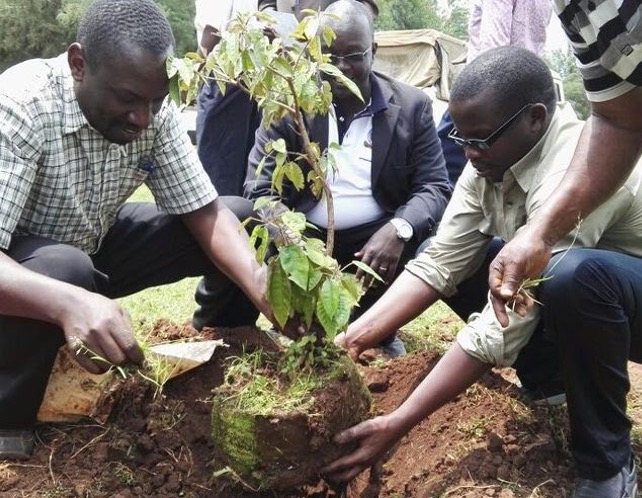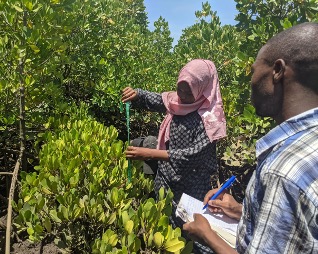Recognising what is at stake with the ongoing degradation of the natural world, highlighted by the IPCC panels convened by UNEP as well as by other organisations and the science community around the world, the call is out for remedial action to be taken. Politicians around the world, along with numerous top representatives of international organisations, banks, corporations, etc., pledge to deal with the issue.
Part of the attention is devoted to financial resources. Coping with the systemic challenge, it is said, demands substantial investment. Estimated by the OECD conclude on a need of investing $8 trillion annually, surpassing $10 trillion by 2030. In practice, actual investments remain limited.
Recognising what is at stake with the ongoing degradation of the natural world, highlighted by the IPCC panels convened by UNEP as well as by other organisations and the science community around the world, the call is out for remedial action to be taken. Politicians around the world, along with numerous top representatives of international organisations, banks, corporations, etc., pledge to deal with the issue.

Massively increased financial support of sustainability is called for to cope with the challenges at hand, especially in less developed countries. The OECD estimates an annual need of $8 trillion in the next few years, surpassing $10 trillion by 2030. Thus far, actual investments remain limited.
This lack of follow-through is increasingly coming under scrutiny. The sustainability crisis is sweeping a world, however, where multiple nation states battle severe fiscal constraints. Many are heavily indebted, and run major public and current account deficits. Discussions of debt-relief, or debt-for-nature swaps, are high on the agenda for offering a way out. Geopolitical complications thwart quick fixes though. Inevitably, any adequate solution must encompass an enlarged role for the private sector. Regulatory
frameworks, TCFD, TNFD, the EU green deal, and CSRD - the EU scheme for encouraging corporate social responsibility - now place high demands on
financial institutions and corporations to report on their impacts, and present plans for rectifying damage done. Increasingly. they are obliged to assume responsibility for those they choose to interact with, in supply chains, creditor relations, and so forth.

On a related note, despite more or less half of all equity registered on the world's stock exchanges aligning with ESG criteria, questions are increasingly raised what difference it makes on the ground. The reporting required by enterprises to many appear as destined to make them “look good”. Many examples of what appears as “greenwashing”, i.e., empty claims of taking action in support of sustainability, erodes trust, particularly in vulnerable communities. Citizens’ responses to the call for action vary, with some greatly concerned while others appear indifferent or sceptical. Climate disasters exacerbate polarisation, amplifying the demand for rectifying measures among some while fuelling defiance in others.
Against this backdrop, new instruments are needed to combine, on the one hand, mobilisation of private sector investment in support of sustainability with, on the other hand, with improved mechanisms for verifying and communicating impacts, on terms that help establish broad-based trust. Means of achieving direct engagement by the public are now at hand following the advance of AI along with open data, blockchain technology, etc.

In recent deliberations related to COP29, IKED proposes the introduction of a digital investment vehicle, incorporating novel AI functionality, offering the means for the general public to engage and gain a voice in identifying and selecting the mobilisation of financial as well as other means of support. Further, citizens should be in the position to gauge and receive updated information in real-time on impacts generated, enabling a closer connection between investors, projects, impacts on the ground, and the public.
Ideally, along these lines, enhanced resource transfers should be coupled with user-friendly verification mechanisms along with interactive awareness creating content development. While the precise means are still under development, the purpose is to couple a spurt to impact investment with mechanisms to build trust and buy-in by the public (no such combined platforms and investment vehicles exist today).


A portfolio of pilot projects, ready for the application of tailored impact indicators, is at hand. The most advanced projects, located in Africa and South Asia, have the mechanisms in place to receive funds through the impact investment vehicle. Discussions are ongoing with leading fintech providers of required validation and verification services along with other key building blocks.








